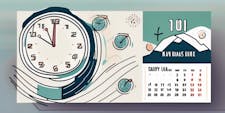Ace the Exam With Our Free SAT Practice Tests & Study Guide 2024
Updated March 18, 2024
The SAT is one of the most important exams for high school students preparing to enter college.
While taking the SAT may seem daunting, proper preparation and practice can significantly increase your chances of achieving a high score.
This study guide, specifically designed for the new digital SAT test format, covers all the essential topics and provides valuable tips and tricks to maximize your performance.
Let’s get started.

SAT Exam Practice Questions
The SAT exam consists of several sections:
- Reading
- Writing and language
- Math (with and without a calculator)
SAT Reading Section
The SAT reading section evaluates your ability to comprehend and analyze written passages. It includes both fiction and non-fiction texts, covering a wide range of topics.
Developing strong reading comprehension skills and identifying key information, main ideas and supporting details is crucial to excel in this section.
Passage 1:
‘In recent years, technology has transformed the way we communicate. While some argue that it fosters connection, others express concern about its impact on personal relationships.’
What is the main focus of the passage?
a) Personal relationships
b) Technology and communication
c) Argumentative writing
d) Social media impact
According to the passage, how do some people feel about technology's impact on personal relationships?
a) Enthusiastic
b) Ambivalent
c) Optimistic
d) Concerned
Passage 2:
‘Climate change poses a significant threat to global ecosystems. Addressing this issue requires collective action and a shift towards sustainable practices.’
What is the primary concern discussed in the passage?
a) Ecosystems
b) Climate change
c) Sustainable practices
d) Collective action
According to the passage, what is necessary to address climate change?
a) Individual efforts
b) Sustainable practices
c) Collective action
d) Technological advancements
Passage 3:
'Exercise is often touted for its numerous physical health benefits, such as weight management, cardiovascular health, and muscle strength. However, recent research has shed light on another crucial aspect of exercise: its impact on mental wellbeing. Studies have shown that regular physical activity can significantly improve mood, reduce symptoms of anxiety and depression, and enhance overall cognitive function.
'One study conducted by researchers at a leading university found that participants who engaged in moderate-intensity exercise for at least 30 minutes per day reported lower levels of stress and greater feelings of happiness compared to sedentary individuals. Furthermore, exercise has been linked to the release of endorphins, neurotransmitters in the brain that act as natural painkillers and mood elevators.
'Moreover, the benefits of exercise extend beyond just temporary mood improvement. Long-term engagement in physical activity has been associated with a reduced risk of developing mental health disorders, such as depression and anxiety. Regular exercise has also been shown to enhance self-esteem and promote better sleep, both of which are essential components of overall mental wellbeing.
'In conclusion, while exercise is commonly recognized for its physical health benefits, it is equally important to acknowledge its profound impact on mental health. From reducing stress and anxiety to boosting mood and self-esteem, regular physical activity plays a crucial role in maintaining both physical and mental wellbeing.'
Which of the following best describes the main idea of the passage?
a) The benefits of exercise on mental health
b) The history of the Olympic Games
c) The importance of diet in maintaining physical fitness
d) The link between physical and mental wellbeing
Writing and Language Section
The writing and language section assesses your ability to revise and edit written passages.
You will be presented with a series of passages and asked to identify and correct errors in grammar, punctuation, sentence structure and usage errors.
This section tests your command of standard English conventions and your ability to improve the clarity and effectiveness of written communication.
Choose the grammatically correct sentence.
a) Each of the students has their own opinions.
b) Each of the students have their own opinions.
c) Each of the students have his own opinions.
d) Each of the students has his or her own opinions.
Identify the sentence with the correct punctuation.
a) The concert was fantastic the band played all their hits.
b) The concert was fantastic, and the band played all their hits.
c) The concert was fantastic the band played all their hits.
d) The concert was fantastic the band played all their hits.
Which of the following sentences is grammatically correct?
a) Each of the students in the class have completed their assignments.
b) The committee are meeting tomorrow to discuss the issue.
c) The team of scientists is conducting experiments in the laboratory.
d) The jury was divided in their decision on the case.
SAT Math Section
The math section of the SAT evaluates your mathematical reasoning and problem-solving skills. It covers various topics, including algebra, geometry, statistics and data analysis.
Some questions allow the use of a calculator, while others do not.
To succeed in this section, having a solid foundation in mathematical concepts and practicing applying them to real-world scenarios is essential.
If , what is the value of ?
a) 5
b) 3
c) 15
d)
What is the slope of the line passing through the points (2, 4) and (6, 10)?
a) 1
b) 1.5
c) 2
d) 2.5
If , what is the value of ?
a) 5
b) 6
c) 7
d) 8
10 Essential Tips for SAT Exam Success
Preparing for the SAT can be overwhelming, but you can conquer this challenge with the right approach.
Here are ten essential tips to help you succeed on the SAT exam. These tips cover everything from effective study techniques to test-taking strategies.
Following these suggestions can optimize your preparation and boost your confidence before the big day.
Step 1. Create a Study Schedule
Creating a study schedule is one of the most important aspects of SAT preparation. By setting aside specific times each day or week to study, you can ensure you cover all the necessary material and avoid cramming at the last minute.
A study schedule will help you stay organized and focused, allowing you to make the most of your study time.
Step 2. Familiarize Yourself with the Test Format
Take the time to familiarize yourself with the test format.
Understanding the structure of the exam, including the number of sections, types of questions, and time limits, will help you develop effective strategies for each section. By knowing what to expect, you can approach the test with confidence.
Step 3. Practice, Practice, Practice
Practice is key when it comes to SAT success.
Make use of practice tests and sample questions to get a feel for the types of questions you'll encounter on the exam.
Set aside regular practice sessions to improve your speed and accuracy. The more you practice, the more comfortable you'll become with the test format and the better prepared you'll be on test day.
Step 4. Focus on Your Weak Areas
Identify your weak areas and focus on improving them. Whether it's math, reading comprehension or writing, dedicate extra time to mastering the skills needed to excel in those areas.
You can turn your weaknesses into strengths and improve your overall score by targeting them.
Step 5. Use Effective Study Techniques
When studying for the SAT, using effective study techniques that work best for you is essential.
Experiment with different methods, such as flashcards, mnemonic devices, or group study sessions, to find what helps you retain information most effectively.
Remember, everyone learns differently, so find the techniques that suit your learning style.
Step 6. Take Care of Yourself
While studying for the SAT is important, taking care of yourself is equally crucial.
Make sure to get enough sleep, eat well-balanced meals and exercise regularly. Taking care of your physical and mental well-being will ensure that you're in the best condition to perform your best on test day.
Step 7. Utilize Available Resources
Take advantage of the numerous resources available to help you prepare for the SAT.
Online study guides, practice tests, tutoring services, and review books can provide valuable insights and additional practice opportunities.
Feel free to seek help or guidance when needed.
Step 8. Develop Time Management Skills
Time management is crucial during the SAT.
With limited time for each section, developing effective time management skills is essential.
Practice pacing yourself during practice tests to ensure that you can complete each section within the allotted time.
By mastering time management, you'll be able to answer more questions accurately and avoid feeling rushed.
Step 9. Stay Positive
Maintaining a positive mindset throughout your SAT preparation is essential. Believe in your abilities and stay confident in your knowledge and skills.
Positive thinking can help reduce test anxiety and improve your overall performance. Remember, you've put in the effort and preparation, so trust in yourself and stay positive.
Step 10. Review and Reflect
As you approach the SAT exam, take the time to review and reflect on your preparation. Review your study materials and practice test results, and identify areas to improve further.
Reflecting on your progress will help you identify any last-minute adjustments you need to make and boost your confidence before the exam.
The SAT test can be challenging, as it assesses critical thinking, math and language skills. Preparation is key to success.
Practice for the SAT by using official College Board materials, taking a timed online sat exam practice test and reviewing content areas where improvement is needed.
The best SAT practice test is often an official College Board test, as it closely aligns with the actual exam's format and content.
To achieve a 1,500 on the SAT, a recommended study period is about 3-6 months, with consistent, focused practice and review.
Achieving a 1,200 on the SAT depends on individual skills and preparation; it can be challenging for some but manageable with effective study strategies.
Beginners should start with a diagnostic test, create a study plan, focus on weak areas, and gradually increase practice intensity over time.
The SAT includes multiple-choice and grid-in questions. There's also an optional essay. Familiarizing yourself with the test format is crucial for success.
Final Thoughts
The SAT is undoubtedly a challenging exam, but you can overcome any obstacle with the right resources and preparation.
Our SAT Practice Tests and Study Guide is designed to equip you with the knowledge, skills, and strategies needed to excel on test day.
Using our free practice tests and detailed study guide, you can confidently approach the SAT and achieve your desired score.
Don't leave your future to chance – start your SAT preparation journey with us today!






